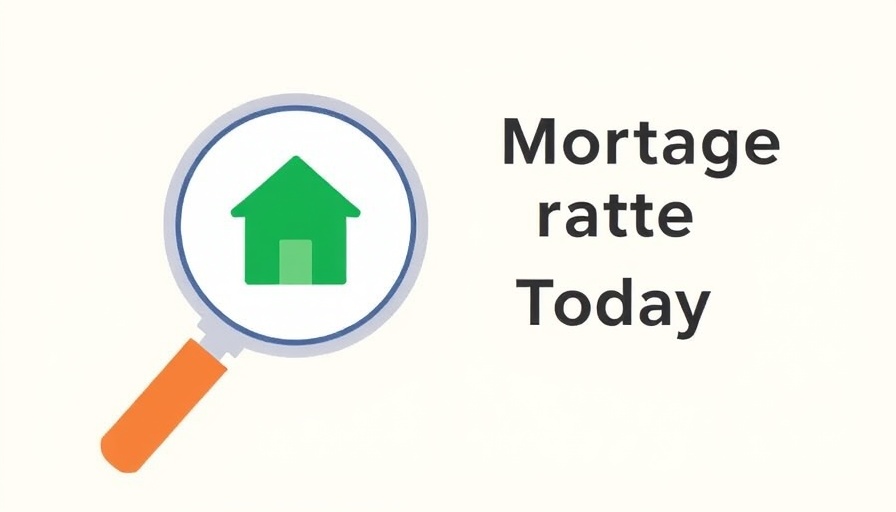
Understanding Today's Mortgage Rates: What Small Business Owners Should Know
As of September 4, 2025, mortgage rates have taken a slight dip, landing at an average of 6.58% for 30-year fixed mortgages. While this reduction of four basis points from the previous day and three from a week ago might not seem significant, it does have implications for small business owners and managers looking to invest in property. In a fluctuating market, even small shifts can impact budget planning and financial forecasts for real estate investments.
The Bigger Picture of Mortgage Rates
Small business owners often overlook the importance of monitoring mortgage rates, believing that these changes have little overall impact on their business operations. However, understanding mortgage trends can influence critical investment decisions, especially for those considering purchasing commercial space or refinancing existing properties. Investment in real estate can be a great asset for business growth, and taking advantage of lower rates could facilitate easier access to capital and potentially lower monthly payments.
Historical Context: How Have Mortgage Rates Changed?
Over the past few years, mortgage rates have been in constant flux, driven by factors such as federal interest rate changes, inflation expectations, and the economic recovery post-pandemic. In fact, rates had hit historic lows during the pandemic, sparking a boom in refinancing as homeowners sought to lock in lower monthly payments. For small business owners, aligning mortgage rates with expansion goals can offer strategic benefits, especially when rates are favorable.
Current Trends to Watch
With the ongoing shifts in monetary policy and inflation concerns, staying informed about mortgage rate trends is crucial for small businesses. The Federal Reserve's decisions to raise or lower interest rates significantly influence lending rates, including mortgages. Small business managers should monitor these developments closely as they may create opportunities to secure financing at a lower cost, enhancing cash flow and profitability.
Investing Wisely: From Knowledge to Action
Understanding these subtle changes in mortgage rates can allow small business owners to plan strategically for real estate investments. Whether looking to purchase new space or refinance, being able to lock in lower rates can save substantial amounts over time. A thorough analysis of their current financial situation, combined with market trends, can lead to informed decisions that will benefit the long-term health of their business.
Embracing Technology in Real Estate Financing
In today’s digital era, the integration of AI and other digital tools into the financing landscape has expedited the home buying and refinancing processes. Many platforms now offer automated features that allow business owners to compare rates seamlessly and access personalized mortgage options. Engaging with these technologies can lead to better deals and enhanced efficiency, reflecting a step forward in financial management for businesses.
Conclusion: Seizing Opportunities in the Mortgage Market
In summary, while the decrease in mortgage rates on September 4, 2025, is minor, it serves as a reminder for small business owners to remain vigilant about market trends. By understanding the implications of these rates, businesses can make informed decisions that will contribute to their financial stability.
For those considering a property investment or a refinance, now is an opportune moment to evaluate your options. Consult with your financial advisor and leverage digital tools to ensure that you are making the best move for your business. Embrace the opportunity to secure a favorable mortgage rate and enhance your business's financial growth.
 Add Row
Add Row  Add
Add 




Write A Comment